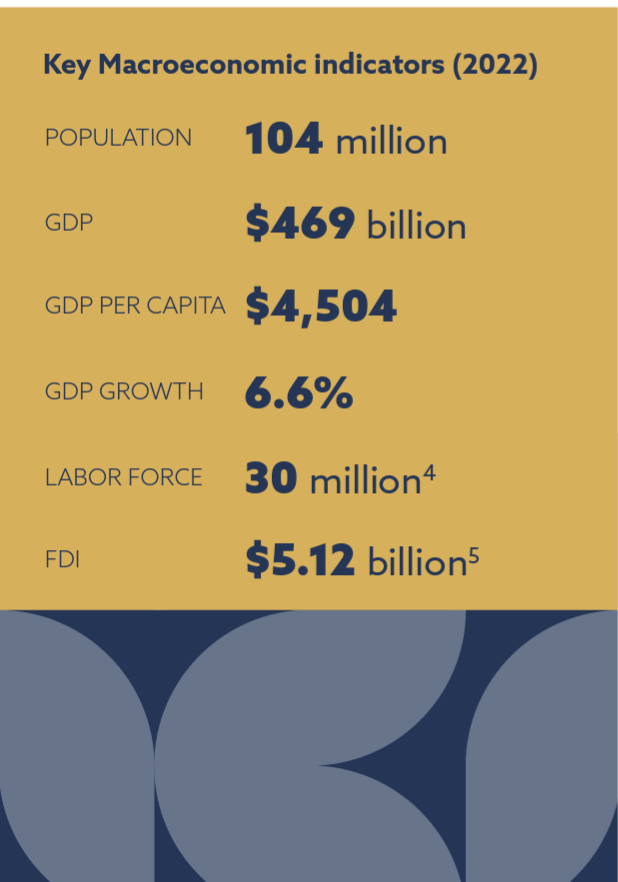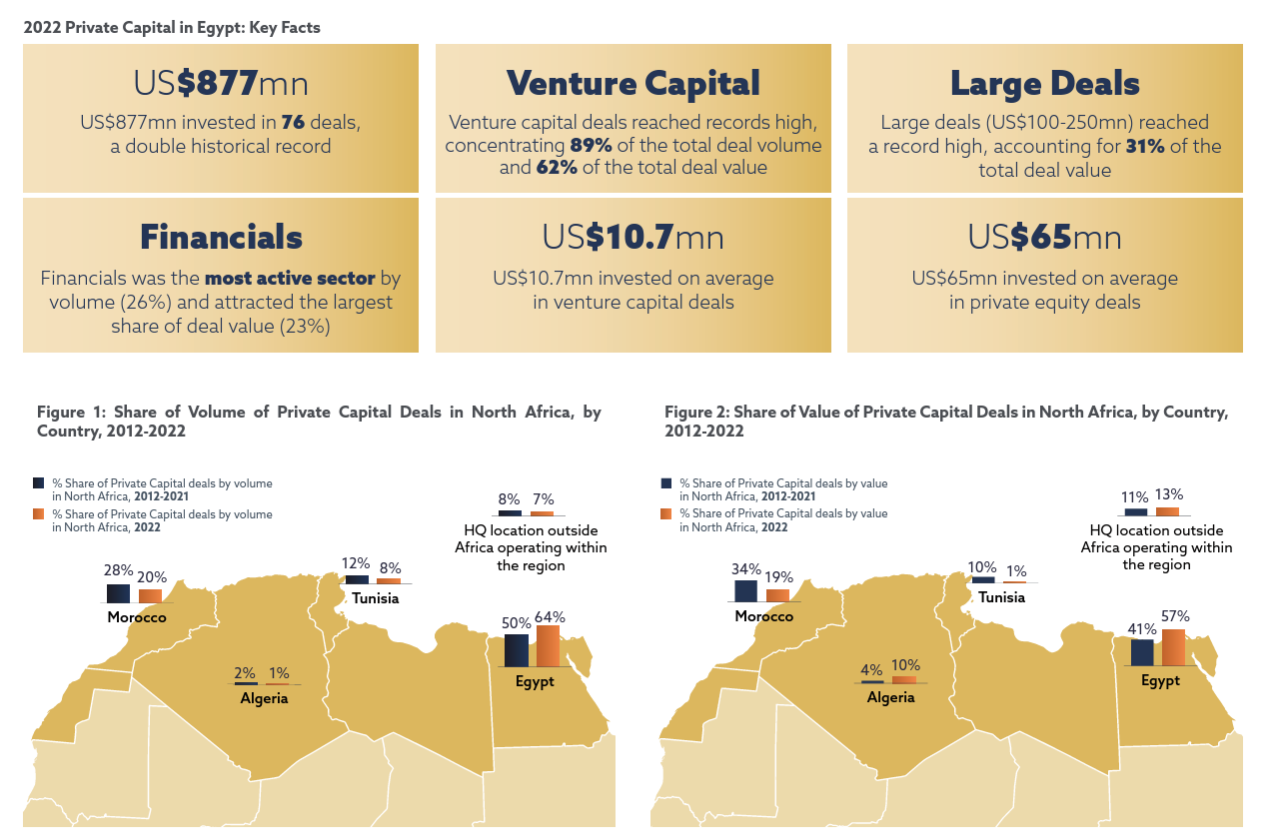2023 AVCA Country Spotlight: Egypt
We are pleased to share the 2023 AVCA Country Spotlight: Egypt, featuring a country overview and economic outlook. Egypt’s diversified economy presents opportunities in several sectors and is one of Africa’s industrial heavyweights, maintaining its position among the top attractive investment destination in Africa in 2022.
Read the public report
2023 Country Spotlight: EgyptDrawing on AVCA’s latest Research, the Industry Quarterly Review demonstrates the breadth and impact of our industry with a regular roundup of the preceding quarter’s industry news, market activity and regulatory reform.
Country Overview
Egypt is a lower middle-income and transcontinental country situated in Northeastern Africa and the Sinai Peninsula in Western Asia (Middle East). It is the twelfth largest country in. Africa and covers a total area of 1,001,449 square kilometers1 . Egypt is the second largest economy in Africa after Nigeria (overtaking South Africa) with a gross domestic product of around US$469 billion, as of 20222 . It is home to more than 104 million people according to the country’s Central Agency for Public Mobilization and Statistics (CAPMAS), making it the most populous country in North Africa and in the Middle East, with a per capita income of USD 4,504 according to IMF3 . With the world’s longest river (the Nile) and a strategic location, Egypt has always been a hub for trade routes between Africa, Europe, and Asia. This natural advantage was enhanced in 1869 by the opening of a long artificial waterway, the Suez Canal, which helps Egypt expand its reach from the Mediterranean Sea toward the Red Sea. Egypt’s. strategic location has encouraged the signing of multiple trade agreements (pan-African and global), including AfCFTA, EU-Egypt Association Agreement, GATT, and GATS. Egypt’s diversified economy presents opportunities in several sectors and is one of Africa’s industrial heavyweights.
Economic Outlook
The International Monetary Fund (IMF) conservatively projected the real GDP growth for Egypt at 4.0% in the year 2023. However, the IMF shows confidence towards the country’s medium term prospects, which remain favorable provided macroeconomic stability, a durable move to a flexible exchange rate, and meaningful progress on structural reforms to improve non-price competitiveness and the business environment. This is expected to boost private investment and exports, and unleash untapped growth potential. In this framework, the IMF expects Egypt’s GDP Growth to reach 5.3% in 2024. Indeed, Egypt has shown its resilience in the face of the COVID-19 crisis by being one of the first countries on the continent to rebound and maintain positive GDP growth; thus, demonstrating the effectiveness of its government reforms. However, the fallout from the Russia-Ukraine war had a significant impact on the Egyptian economy as one of the largest wheat importers. This geopolitical crisis exerted adverse effects across various market segments, including surging commodity prices and dwindling purchasing power in the goods market, plummeting employment rates in the labor market, soaring inflation, and weakening Egyptian pound prices in the money market.


